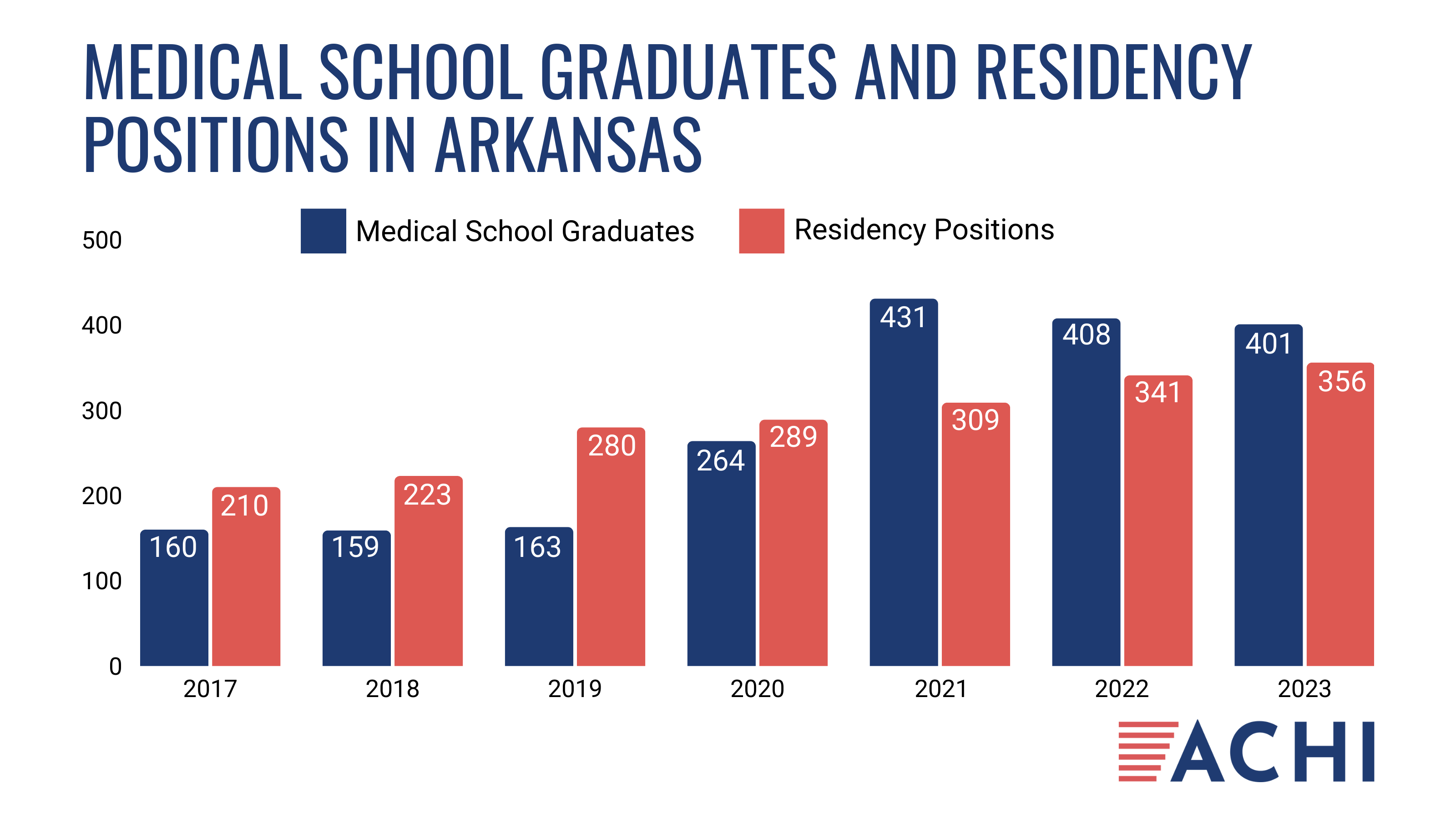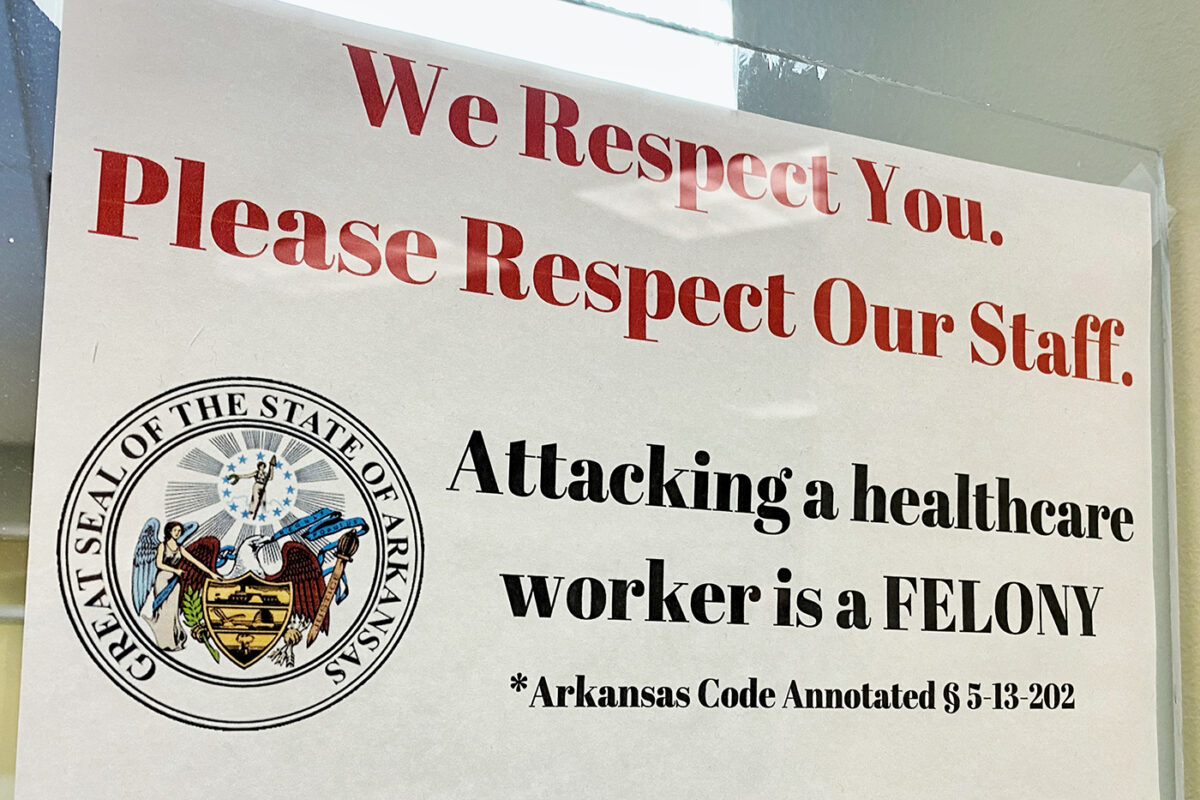
Author
John Lyon
Strategic Communications Manager
Contact
ACHI Communications
501-526-2244
jlyon@achi.net
The number of first-year residency training positions in Arkansas has not kept pace with the growing number of medical school graduates in the state, according to an ACHI review of publicly available information.
In 2019, the number of first-year residency positions in Arkansas far exceeded the number of medical school graduates, with 280 residency positions and 163 graduates. Since 2021, however, the number of medical school graduates has surpassed the number of residency positions each year. In 2023, there were 401 graduates and just 356 residency positions, so a large portion of this year’s graduates had to leave the state for training.

The state in which a resident trains is significant: Of residents nationwide who completed residency training between 2011 and 2020, 57% continue to practice in the state where they completed their residency, according to the Association of American Medical Colleges.
“Arkansas has gone from being a net importer of physician talent to a net exporter,” said ACHI President and CEO Dr. Joe Thompson. “The increase in the number of graduating physicians, both M.D. and D.O., has outpaced available residency positions necessary for their next step in training. To ensure Arkansans have access to primary and specialty care in the future, we must strengthen our training pipeline for future physicians by investing in more residency positions in our state.”
Arkansas has increased the number of residency positions in the state in recent years, but the number of medical students graduating each year has received a major boost from the opening of two new medical schools, the New York Institute of Technology College of Osteopathic Medicine at Arkansas State University in Jonesboro and the Arkansas College of Osteopathic Medicine in Fort Smith. The Alice L. Walton School of Medicine in Bentonville is expected to welcome its inaugural class in 2025, further heightening the need for new residency positions.
Arkansas currently faces a physician shortage. As of 2020, the state was ranked 46th among all states in per capita physician workforce, according to the Association of American Medical Colleges. A report and interactive dashboard recently launched on our website highlight several troubling issues with the state’s primary care physician workforce, including:
- In 2020, Arkansas had 9.2 active primary care physicians per 10,000 Arkansans, but only six of those physicians practiced full-time. Six counties had only one full-time primary care physician in that year.
- Twenty-seven percent of full-time primary care physicians are age 60 or older, and early-career primary care physicians who are under 45 are more likely than primary care physicians in older age groups to practice less than full-time.
- Black and Hispanic Arkansans represent only 6% and 2.5%, respectively, of the active primary care physician workforce, despite representing 14.9% and 8.5%, respectively, of the state’s population.
There is increasing recognition of the need for additional residency slots at the federal level. The federal budget bill approved in December 2022 created 200 new Medicare-supported residency slots beginning in fiscal year 2026, with 100 of these slots specifically allocated to psychiatry and psychiatric subspecialties. Multiple pending congressional bills would further expand the number of residency slots, including one co-sponsored by Arkansas Sen. John Boozman that would allocate residency slots following a hospital closure by directing federally funded residency slots to areas where doctors are most needed.
Working with stakeholders in health care education, training and delivery, ACHI will continue to profile Arkansas’s health care workforce needs to inform policy decisions and guide investments to ensure Arkansans have high-quality, accessible care. See more on our Arkansas Healthcare Workforce page.






